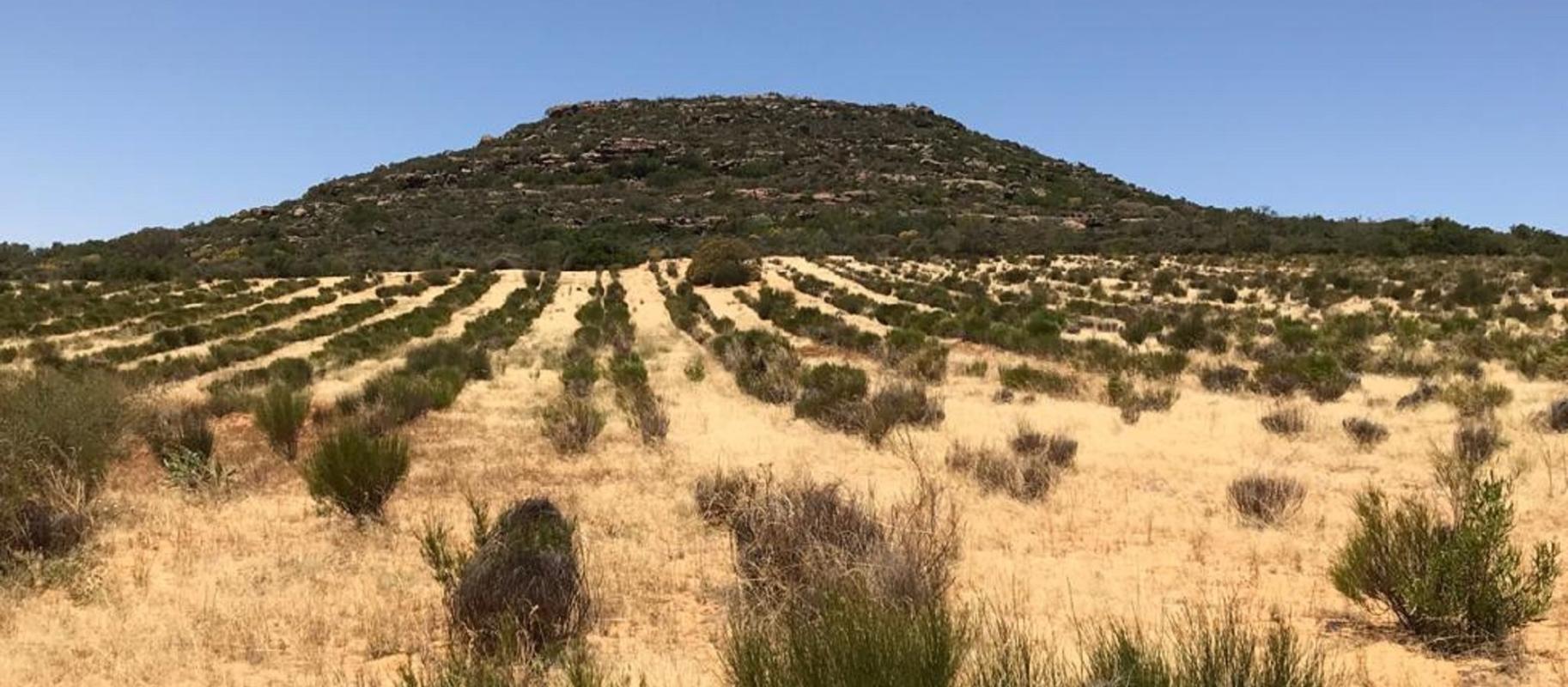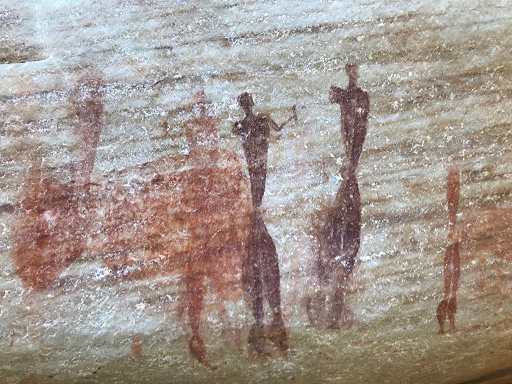
Drink more Rooibos
27 Jul 2022
There are impactful reasons for why drinking more rooibos tea is a valuable act in our everyday life. During a stakeholder engagement dialogue on the 1st of March, AWEI asked whether wild plants provide an opportunity for African wildlife economies. A new development in the South African rooibos industry is offering an answer.
The Afrikaans word ‘rooibos’ means ‘red bush’ and is commonly used in Southern Africa and globally to represent an herbal tea derived from the plant Aspalathus linearis. It comes with a unique story of being endemic (native) only to the Cederberg, a small mountainous area of the Western Cape and Northern Cape provinces in South Africa.
Since 2021, rooibos benefits from being registered in eAmbrosia, the EU geographical indications register. It is listed as a product with Protected Designation of Origin (PDO) which means that it has the strongest links to the place where it is made and “every production, processing, and preparation aspect must take place in that specific origin using recognized know-how,” thus preserving its endemic cultivation. Rooibos was the first African food with such status in the EU.
The Cederberg region is semi-arid. It offers fertile soils but harsh microclimate conditions with hot dry summers and wet winters. Nowadays, the tea is often farmed on open fields in long rows of its evergreen bushes. Harvested are the leaves and stems which during the production process undergo oxidation resulting in the typical reddish colour and flavour of the tea. Rooibos is healthy as it does not contain any caffeine, has low tannin levels, and is high in antioxidants. It is also an important ingredient in many alternative remedy and cosmetic products.


Drinking rooibos tea just became more profound than enjoying individual health benefits
The story of rooibos leads us back at least 250 years when a written record stated that the region’s Indigenous communities of the Khoikhoi peoples were using the wild plant. Surely this local knowledge existed many hundreds of years prior to this encounter. European settlers from the late 1800’s onwards then started adopting the use of rooibos as a tea. A combination of the Indigenous knowledge about the wild plant and the know-how of European settlers about commercial tea production led to the cultivation, processes, and products in their current forms.
The Khoikhoi or Khoekhoe, also Khoi, are the traditionally nomadic pastoralist Indigenous population of southwestern Africa. The San are the traditionally hunter-gatherer Indigenous population of southwestern Africa. Often, they are grouped together and referred to as Khoisan. Their original territories mainly expanded across what are South Africa and Namibia today.
Over time, the Indigenous knowledge about rooibos had been neglected and no connection had been attributed to the Khoi and San peoples. These groups have endured a long history of oppression in the colonial era and are still marginalised in the country. As result, this natural resource has been utilised without acknowledgement of its original custodians, not to speak of any benefit sharing.
Only in November 2019 has an industry-wide Access and Benefit Sharing (ABS) Agreement been signed and enforced between the South African Rooibos Council, the National Khoisan Council, the South African San Council and the Department of Forestry, Fisheries and the Environment (DFFE). The agreement was the end result of a nine-year effort which started with a biopiracy campaign against Nestlé in 2010. The company at the time attempted to patent rooibos without the consent of the South African government or its peoples. Yet, the UN Convention on Biological Diversity’s Nagoya Protocol creates the framework to implement ABS agreements to safeguard genetic resources and the traditional knowledge linked to their use.
In order to enforce such an ABS agreement, it became necessary to prove that the Khoi and San were the rightful holders of the Indigenous knowledge about rooibos which was confirmed in 2014. Further, a mechanism had to be established through which the resulting benefits would be shared in an equitable manner which led to the implementation of two Community Trusts for receiving payments. Both objectives were achieved by creating the Khoikhoi Peoples’ Rooibos Biocultural Community Protocol, with support from Natural Justice.
The ABS agreement is regarded as a milestone in the history of global governance regarding the preservation of genetic biodiversity and linked traditional knowledge. It defines the benefit-sharing levy of 1.5% of the farm gate price of rooibos from the ten rooibos industry processors. On the 14th of July 2022, DFFE announced an unprecedented pay-out of these levies (ZAR12.2m / USD727,000) into the Community Trusts of the Khoi and San peoples.
Ms Lesle Jansen, now CEO of Resource Africa, played a significant role in this journey being a leading Indigenous lawyer with focus on environmental and social justice, local communities, and resource rights. In a conversation she tells AWEI that “rooibos emphasises a key approach of sustainable use of wildlife.” The rooibos case is creating a precedent for establishing more ABS agreements around other valuable wildlife products that are associated with traditional African knowledge, such as marula.
AWEI understands ‘wildlife’ to be including of both wild animals and wild plants. Rooibos is an impactful current example of how utilising a natural resource can lead to both the conservation of an endemic plant and its habitat as well as the socio-economic empowerment of its local communities. This benefit-sharing arrangement is a historic move towards achieving a resilient landscape that supports its biodiversity and its people.
In 2020, the South African Rooibos Council estimated that farming rooibos provided income and employment to approximately 8 000 farm laborers, and many others in the supply chain including processing, packaging, and retailing. Total annual production reached about 20 000 tons. This is equivalent to about six billion cups of tea and included both local consumption as well as export of around 8,000 tons to sixty countries internationally.
With international recognitions and market advantages as well as national safeguarding of knowledge and use rights in place, the rooibos industry can further grow and contribute to the protection and promotion of South African heritage and genetic resources.
Dr Julia Baum, AWEI Partnerships & Conservation Entrepreneurship Advisor
All images: Julia Baum
We support the free flow of information. Please share:
More content
-

A theory of change to improve conservation outcomes through CITES
Dr Michael 't Sas-Rolfes…Here we articulate the implied theory of change (ToC) underpinning the design and operation of CITES (Convention on...
2025Research -

Wild Meat Value Chain Integration Systems: Opportunities for Value Chain Formalisation and Scaling in Africa
Dr Wiseman Ndlovu…Establishing legal, safe and sustainable wild meat sector promises to potentially reduce demand for illegally sourced meat, support...
2025Research -

AWEI's 2024 Wildlife Economy Dialogue Series
Ms Emily TaylorRediscover 2024: A year of insight and inspiration
In 2024, AWEI proudly hosted three ground-breaking dialogue series in…
Articles -
Evaluating key evidence and formulating regulatory alternatives regarding the UK's Hunting Trophies (Import Prohibition) Bill
Dr Michael 't Sas-Rolfes…We evaluate key evidence relating to the Hunting Trophies (Import Prohibition) Bill that was discussed in the UK...
2024Research -

The return of the UK's ill-conceived bill to ban hunting trophy imports
Prof Francis Vorhies…A recent report and poll reveal serious flaws in the UK government’s continued push to ban the importation…
Articles -

India’s Wildlife Economy: Balancing Conservation and Sustainable Use
Mathen ‘Rajeev’ MathewThe concept of a wildlife economy through the sustainable use of wildlife is increasingly recognised as a means…
Articles -

Leveraging free trade to boost Africa’s wildlife economies through wild-harvested products
Dr Wiseman NdlovuThe intra-Africa trade of wild products presents a unique intersection of economic opportunity and environmental conservation. With the...
2024Research -

Insights from the African Wildlife Economy Colloquium
Klarine SchutteThe inaugural African Wildlife Economy Colloquium, held from 4–6 November at Stellenbosch University, brought together a diverse group…
Articles -

Drivers of hunting and photographic tourism income to communal conservancies in Namibia
Mr Joseph Goergen …Hunting and photographic tourism provide ecosystem services that can facilitate conservation. Understanding factors influencing how tourism industries generate...
2024Research
Get updates by email
Through impactful research, stakeholder engagement, and professional development, AWEI is supporting the wildlife economy across Africa. Please subscribe for occasional updates on our work and forthcoming events.
Sign up for a quarterly dose of AWEI insights
In a complex and changing world, AWEI generates strategic ideas, conducts independent analysis on wildlife economies, and collaborates with global scholar-practitioners to provide training and expertise for biodiversity conservation, climate resilience, and inclusive economic opportunities in Africa.
